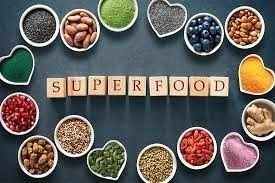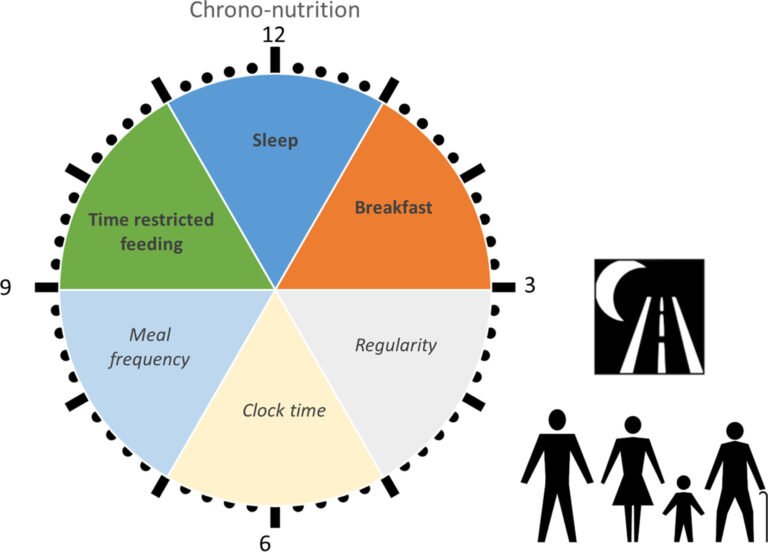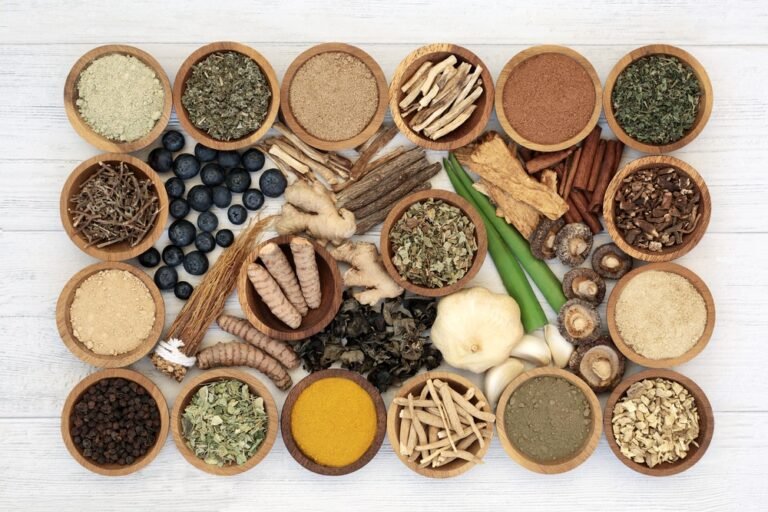Superfoods by Season: What to Eat When for Maximum Nutrients
Healthy eating isn’t only about what you eat — it’s also about when you eat it. Seasonal superfoods are the key to maximizing nutrients, improving digestion, and staying in sync with nature. Think juicy watermelon in July to hydrate you, or citrus fruits in December to protect your immune system. In this guide, you’ll discover the best seasonal superfoods by season and how to use them for health, beauty, and budget-friendly eating.
In this ultimate guide, we’ll break down the best seasonal superfoods for each time of year, explain why timing matters, and share practical tips to make seasonal eating simple and enjoyable. You’ll learn which foods boost immunity in winter, which greens detox your body in spring, which fruits keep you hydrated in summer, and which antioxidant-rich vegetables protect you in fall. We’ll also explore how to eat with the seasons for better health, how to shop for budget-friendly seasonal superfoods, and even how these foods can improve your skin. Whether you’re brand new to seasonal eating or just looking for fresh inspiration, this guide will give you everything you need to build a nutrient-packed, season-smart diet all year long.
Why Seasonal Superfoods Matter
- Peak Nutrition: Foods grown and eaten in season are fresher, more flavorful, and packed with vitamins.
- Flavor First: Strawberries in summer taste like candy — not like the bland ones you find in January.
- Body Wisdom: Summer’s hydrating fruits, fall’s antioxidant-rich roots, winter’s immune boosters, and spring’s cleansing greens all match what your body needs.
- Budget & Sustainability: Local, in-season produce is often cheaper and has a smaller carbon footprint.
Winter Seasonal Superfoods for Immunity Boosting
Winter is flu season, and nature provides exactly what we need: citrus, cruciferous veggies, and grounding roots to strengthen the immune system.
1. Citrus Fruits (Oranges, Grapefruit, Lemons)
Packed with vitamin C to fight off colds.
2. Pomegranates
Rich in antioxidants that protect heart health.
3. Brussels Sprouts
Full of vitamin K and detoxifying compounds.
4. Beets
Boost blood flow and energy during dark months.
5. Carrots
Beta-carotene for vision and immune resilience.
💡 Pro Tip: Warm winter soups, citrus salads, and roasted root veggies are the way to go.
Spring Superfoods for Energy and Detox
Spring is renewal season. Fresh greens and tender shoots help cleanse the liver, boost digestion, and refresh energy after winter.
1. Asparagus
Flushes toxins, rich in folate.
2. Spinach & Leafy Greens
High in chlorophyll to detoxify the body.
3. Radishes
Support liver health and digestion.
4. Artichokes
Excellent for liver support and gut health.
5. Strawberries
One of spring’s first sweet antioxidant-rich fruits.
💡 Pro Tip: Light salads, green smoothies, and steamed greens help reset your system.
Summer Hydrating Foods and Fruits
Hot days demand hydration and antioxidant protection. Summer produce keeps you cool, energized, and protected from sun damage.
1. Watermelon
Over 90% water — nature’s sports drink.
2. Tomatoes
Rich in lycopene, protecting skin from UV rays.
3. Blueberries
Tiny but mighty, great for brain and heart health.
4. Cucumbers
Cooling and soothing for digestion.
5. Corn
Packed with fiber and compounds that support vision.
💡 Pro Tip: Fresh fruit bowls, cold salads, and grilled veggies keep summer meals light.
Fall Antioxidant-Rich Foods
Autumn foods fortify you for the colder months ahead. Think earthy roots, vibrant squashes, and antioxidant powerhouses.
1. Apples
Quercetin for immunity and digestion.
2. Pumpkins
Beta-carotene for eye health and skin glow.
3. Sweet Potatoes
Balance blood sugar and sustain energy.
4. Cranberries
Protect urinary health and boost immunity.
5. Kale
Nutrient-dense powerhouse for heart health.
💡 Pro Tip: Roasted squashes, hearty soups, and warm spices like cinnamon and nutmeg are perfect for fall meals.
How to Eat With the Seasons for Health
Eating with the seasons is about more than nutrients — it’s about balance, rhythm, and living in sync with nature.
- Spring: Light, fresh, detoxifying.
- Summer: Hydrating, cooling, antioxidant-rich.
- Fall: Grounding, warming, immune-boosting.
- Winter: Comforting, protective, and hearty.
💡 Tip: Rotate your grocery list with the calendar. Your body naturally craves these shifts.
Budget-Friendly Seasonal Superfoods
One of the best perks of seasonal eating? Your wallet will thank you.
- Buy Local & Seasonal: Cheaper than imported produce.
- Shop Farmers’ Markets: Best value for fresh, nutrient-rich foods.
- Preserve Foods: Freeze summer berries or pickle autumn veggies.
- Cook in Batches: Seasonal soups and stews stretch your budget.
💡 Example: In summer, watermelon is abundant and cheap — perfect for smoothies or freezing for later.
Seasonal Superfoods for Skin Health
Your skin reflects what you eat. Seasonal foods naturally give you what your skin needs in each season.
- Spring: Leafy greens detoxify for clearer skin.
- Summer: Watermelon and tomatoes hydrate and protect from sun.
- Fall: Pumpkins and sweet potatoes give skin a beta-carotene glow.
- Winter: Citrus and pomegranates protect against dryness and aging.
💡 Tip: Drink smoothies with seasonal fruits for a skin-nutrition boost.
Seasonal Eating Guide for Beginners
Getting started doesn’t have to be complicated. Here’s your beginner’s playbook:
- Start Small: Choose 2–3 seasonal fruits and veggies each week.
- Shop Smart: Look for what’s on sale — it’s usually in season.
- Use Recipes by Season: Soups in winter, smoothies in summer.
- Keep a Food Calendar: Track what’s fresh each month.
- Listen to Cravings: They often sync with the season.
💡 Beginner Meal Idea
- Winter breakfast: Oatmeal with oranges.
- Spring lunch: Spinach & strawberry salad.
- Summer snack: Watermelon slices.
- Fall dinner: Roasted pumpkin soup.
Final Thoughts
Seasonal superfoods are nature’s ultimate health hack — aligning your diet with the earth’s rhythm gives you maximum nutrients, supports immunity, and even improves skin. From winter citrus to summer melons, fall pumpkins to spring greens, your plate can shift with the calendar. So next time you’re at the market, ask: Which seasonal superfoods are fresh today? That one question can transform your health, budget, and energy all year long.
❓Frequently Asked Questions About Seasonal Superfoods
1. What are seasonal superfoods?
Seasonal superfoods are fruits, vegetables, and natural foods that grow at their nutritional peak during a specific season. Eating them fresh ensures maximum vitamins, minerals, and flavor.
2. Why should I eat seasonal superfoods?
Eating seasonal superfoods helps your body align with nature’s rhythm. They’re fresher, more affordable, and packed with the nutrients your body needs at the right time of year — like hydrating watermelon in summer or immune-boosting citrus in winter.
3. How can seasonal superfoods improve health?
Seasonal superfoods provide targeted health benefits throughout the year. For example, spring greens help detoxify, summer fruits hydrate, fall root vegetables boost antioxidants, and winter citrus strengthens immunity.
4. Are seasonal superfoods budget-friendly?
Yes! Seasonal superfoods are often more affordable because they’re abundant and local. Shopping at farmers’ markets or choosing produce in season is a great way to save money while eating healthier.
5. Which seasonal superfoods are best for skin health?
Seasonal superfoods like tomatoes and watermelon protect against sun damage in summer, leafy greens detoxify skin in spring, pumpkins and sweet potatoes add glow in fall, and citrus helps prevent dryness in winter.
6. Can beginners easily start eating seasonal superfoods?
Absolutely. Beginners can start by adding 2–3 seasonal superfoods each week to their meals. Shopping for what’s in season locally makes it easy and ensures you get fresher, tastier produce.
7. Do seasonal superfoods taste better than out-of-season foods?
Yes, seasonal superfoods are harvested at peak ripeness, which means they taste fresher and sweeter than out-of-season produce that’s often shipped long distances.
8. Can seasonal superfoods help boost immunity?
Definitely. Winter seasonal superfoods like oranges, pomegranates, and Brussels sprouts are especially rich in vitamin C and antioxidants, helping your immune system stay strong during cold and flu season.
Eating in sync with your body clock doesn’t just help your stomach — it also supports a calmer, more focused mind. If you want to explore more ways to care for your mental wellbeing, check out our full guide on practical tips for better mental health.
For more tips and support, visit our Facebook page.







